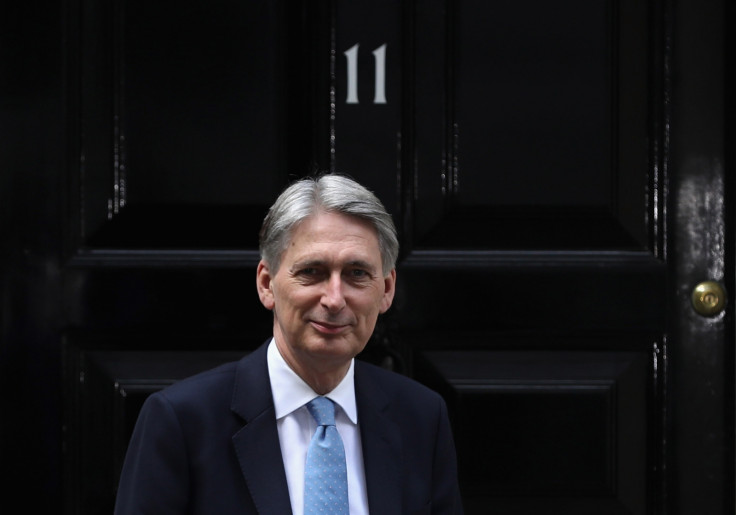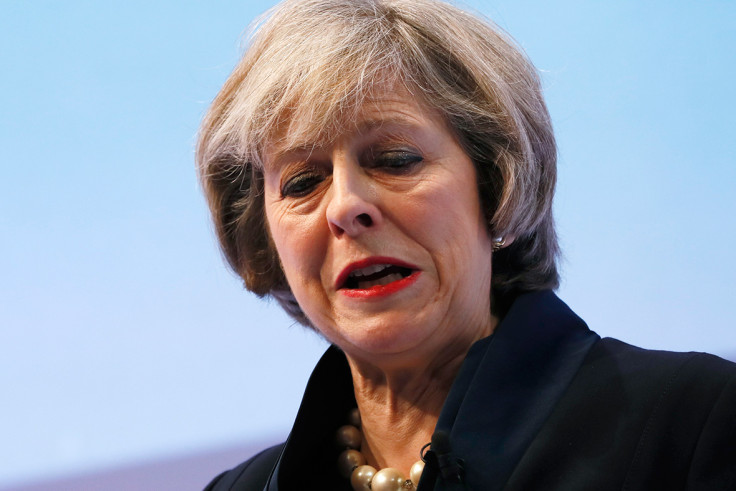We can expect more resentment for the poor from Hammond's Autumn statement
Right-wing politicians have refused to sort out the economic demons that are causing anger.
Seven weeks. That's how long it has taken for Theresa May's Conservative Party Conference platitudes about social justice and "the good that government can do" to be dropped in favour of the usual Tory obedience to big business. As will become crystal clear this week, May and her chancellor, Philip Hammond, are not "stealing Labour's territory", as the newspapers are perennially keen to proclaim, but are instead draping winner-takes-all capitalism in the fashionable language of paternalism and the big state.
This pseudo anti-elitism is where politics is at right now, as Brexit and the unexpected electoral triumph of Donald Trump two weeks ago have demonstrated. Every politician wants urgently to win back the 'left behind', the 'squeezed middle' and, as the newly-coined acronym calls them, the JAMs (the just about managing). As such, a mixture of leftish-sounding economic populism and anti-immigrant rhetoric is very much the order of the day.
Yet in Britain at least, the hastily fitted mask of social justice is already slipping from Tory faces. Not two months after promising to invite '"ot just consumers... but workers as well" onto company boards, Theresa May appears to have dropped the idea altogether, reassuring the Confederation of British Industry "categorically" that her government has no plans to allow the direct appointment of workers or trade union representatives on boards.
While the nervy doyens of big business were being mollified, May's team simultaneously briefed the newspapers that corporation tax was about to be cut further to a record low of 15%. This would reduce it to the lowest level in the developed world, at a cost of £10bn (€11.7bn). The 'just about managing' apparently includes the bosses of some of Britain's most profitable companies.

However we must wait until Wednesday for the proper coup de grace to the peculiar notion that the Conservatives are somehow the true workers' party. It is then that the Chancellor Philip Hammond is expected to announce his intention to press ahead with his predecessor's planned £12bn cuts to benefits. Included in this package of spending reductions are cuts to Universal Credit that alone will cost a single working parent £2,800 a year by 2020, outweighing any gains felt from the increase in the national living wage. While these cuts hammer the low paid, Hammond plans simultaneously to further raise the personal allowance, which disproportionately benefits high earners and will cost the treasury £21bn by 2020.
This assault on the pockets of the JAMs (most of those affected by impending cuts to benefits are in work) is occurring at a time of unprecedented income stagnation. According to the Resolution Foundation, typical incomes for low- and middle-income households are no higher today than they were a decade ago. Meanwhile, almost one million people in low-paying sectors are living in poverty, while the number of workers on precarious zero-hours contracts increased by 21% in the year to June, sitting at just under one million.

The PM's latest response to all of this – to beat a retreat from a tepid proposal to give a voice to workers in company boardrooms - speaks volumes, as does her chancellor's refusal to reverse George Osborne's tax cut for the property rich. Last year 38% of workers earned less than the amount the average homeowner made from the increase in the value of their home.
Yet the 'anti-elitists' of Theresa May's Conservative Party have no plans to reverse Osborne's inheritance tax bonanza for those with homes worth £1m. Instead, those living on less than the £17,000 the Joseph Rowntree Foundation considers the minimum for an acceptable standard of living will be asked to plug the gaping hole in the country's finances that is growing bigger every day thanks to Brexit.
Against this backdrop, what ought to worry anyone who is serious about draining the populist swamp is how the right-wing politicians riding this wave of resentment are incapable of taming the economic demons that are causing so much anger. As for those in the Labour movement who backed 'Lexit' (left-wing Brexit), those misguided dupes ought to be feeling a tad silly right about now: they may have believed they were going to turn Britain into social democratic Norway, but they are invariably going to end up with something resembling ultra-free market Singapore.
Those who demanded that resentful Britons 'take back control' during the EU referendum campaign have no desire to empower those who toil away for poverty wages in the warehouses and call centres that have replaced the pits and power stations in many of Britain's towns and cities. Taking back control has come to mean little more than the ever-tougher border controls demanded by increasingly deranged tabloids.
For all May and Hammond's supposed embrace of the big paternalistic state, as far as the low-paid are concerned nothing remotely new is emanating from the treasury. The overarching philosophy appears to be the same as that of Hammond's predecessor Osborne: the wealthy will only work if you pay them, whereas the poor will only do so if you take their money away.
James Bloodworth is former editor of Left Foot Forward, one of the UK's top political blogs, and the author of The Myth of Meritocracy.
© Copyright IBTimes 2025. All rights reserved.






















